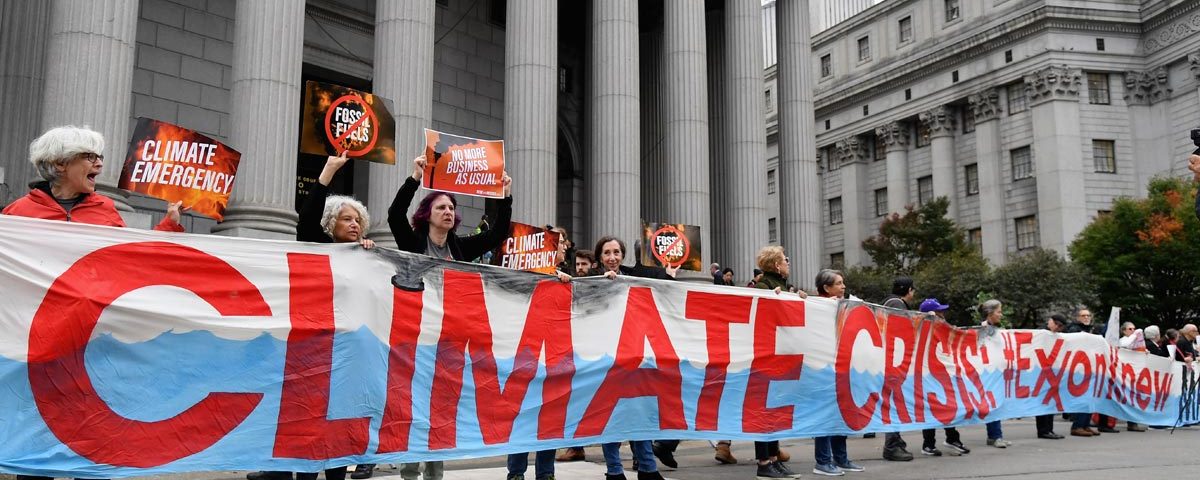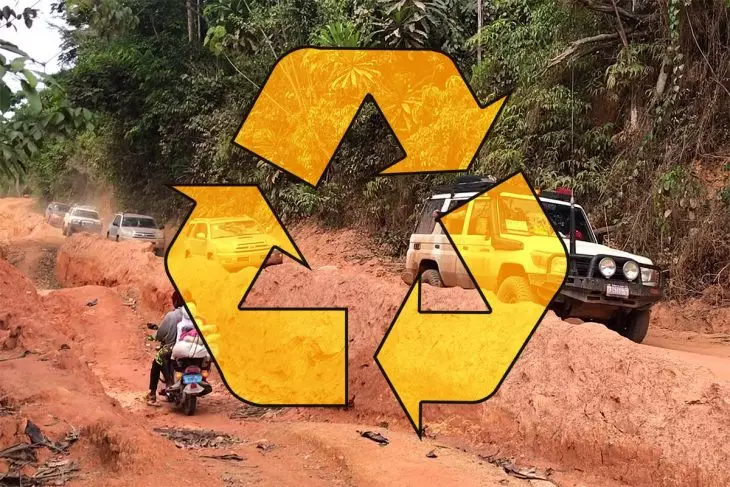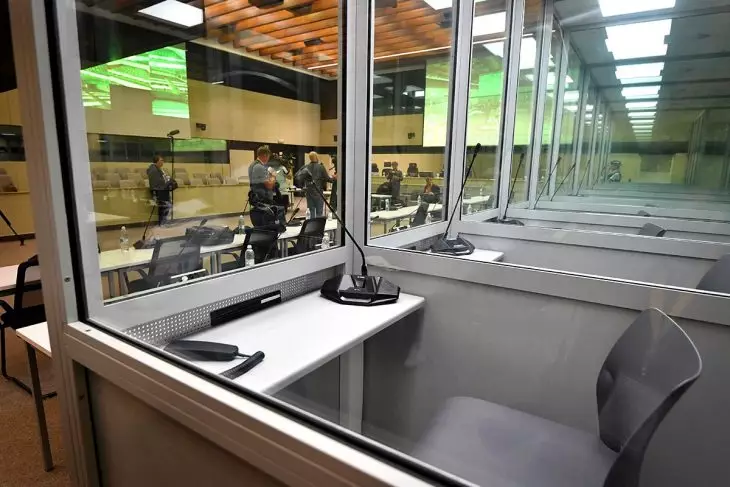U.N. Madrid Climate Summit Ends in Failure

Studio Yafa organizes a training for 22 partner radios in Burkina Faso
December 9, 2019
Radio + Mobile = a winning combination to inform the populations in the Sahel
April 30, 2020The New York Times described the 25th Conference of Parties, or “COP25”, held in Madrid this December as "one of the worst outcomes in a quarter-century of climate negotiations." One hundred and ninety six state parties to the United Nations Framework Convention on Climate Change were unable to reach an agreement that called for more agressive actions to limit greenhouse gas emmissions. The failed negotiations demonstrated the vast gap between scientific reality and the ability of countries to act on that data. Leaders were unable to approve a non-binding measure that would have encouraged countries to adopt more ambitious targets for carbon emissions. China, India and the United States led efforts to dilute any agreement to enhance their climate-action targets in 2020. "The international community lost an important opportunity, " said United Nations secretary-general Antonio Gutteres. It is high time that companies and their executives took their responsibilities, or that the law was adapted to today’s challenges, argues international lawyer Maud Sarliève.
Global greenhouse gas emissions are up 60% since 1990. Last week, the United Nations Environment Program published its 10th Emission Gap Report. This report analyses the latest scientific studies on current and future greenhouse gas emissions. Its findings are alarming: countries collectively failed to stop the growth in global greenhouse gas emissions. A conclusion must be drawn: more striking efforts that those initially anticipated must be deployed by states and companies to radically cut greenhouse gas emissions. These efforts must be deployed now to prevent dangerous levels of climate change.
Almost no one seriously contests anymore that increasing greenhouse gas emissions have a significant impact on the planet’s climate or that these emissions essentially result from human activities. Almost no one seriously contests that these changes in climate patterns have catastrophic consequences on all forms of life. Even under the best-case scenario, hundreds of millions of people will face food insecurity, forced migration, disease, and death according to the UN Special Rapporteur on extreme poverty. Around the world, climate change has harming effects on the most vulnerable populations, exacerbating inequality and perpetuating injustice. In high altitude regions such as Peru or Nepal, villages are at imminent risk of being damaged or destroyed due to the melting of glaciers linked to climate change. Countries like the Philippines or Haiti are being hit by increasingly powerful weather disasters resulting from global climate unbalance. Small Island States see their surface shrink with the rise of sea-level. Countries most vulnerable to climate change are situated in sub-Saharan Africa, where the total population is growing steadily. Time magazine predicts that the vast majority of this population will be pushed out of their homes as a result of global-warming linked desertification.IDENTIFYING THE MOST RESPONSIBLE ACTORS
In a global world with fossil fuel dependent societies, 70% of greenhouse gas emissions are produced by the burning of fossil fuels. Agriculture, deforestation and changes in land use cause 24% of emissions, while building operations produce the remaining 6%. The main contributors to climate change are the large corporate actors involved in the extraction, treatment and use of fossil fuel – also called Carbon Majors – or those whose activities encourage massive deforestation. Yet, to this day, none of these companies have engaged in meaningful change to reduce greenhouse gas emissions. The UN Special Rapporteur on the issue of human rights obligations relating to the enjoyment of a safe, clean, healthy and sustainable environment denounced that, instead of phasing out fossil fuels and reverse deforestation, some of these companies have even used their immense economic and political power to resist the societal transformations needed to successfully address climate change. The UN Special Rapporteur on extreme poverty noted that this has happened with the complicity of the states which subsidize this industry and extend extraordinary protections to its investors. His latest report claims that “corporate actors cannot and will not, of their own accord, be capable of promoting a comprehensive approach that ensures the sort of economic and social transformation that climate change mitigation demands.”
From a legal perspective, this raises a number of tricky questions: if corporate actors should be held accountable, what is the next step towards identifying the most responsible? Whether and to which extent should they be held accountable when the responsibility for climate change is clearly diluted? To whom should they be held accountable? Should it be to their shareholders for downplaying the expected risks on their businesses? Or to the most vulnerable populations who are already suffering from climate change? Or to the public authorities which have had to invest massively to adapt in anticipation of the upcoming challenges? And if some businesses are held accountable, which liability regime should be applied? Which type of remedy should be granted?THE LIMITS OF NON-COERCIVE STRATEGIES
Some of these incredibly complex questions were discussed last week at the 8th annual United Nations Forum on Business and Human Rights in Geneva, where more than 2,000 experts, practitioners and leaders gathered between 25 and 28 November for three days of dialogue on business-related human rights impacts. One out of more than 70 sessions was dedicated to business and climate change where two different strategies to hold corporations accountable for their contributions to climate change were presented.
The first one, non-coercive, calls for dialogue. In 2011, the Organisation for Economic Co-operation and Development (OECD) published Guidelines for multinational enterprises. These guidelines are recommendations addressed by governments to multinational corporations operating in or from adhering countries. Their scope extends to environmental and climate matters. National Contact Points assist companies and their stakeholders to take appropriate measures to further the implementation of the Guidelines. They also provide a media and conciliation platform. In November 2017, four NGOs (Greenpeace Netherlands, Oxfam Novib, Banktrack and Milieudefensie) filed a complaint against the Dutch bank ING before their Dutch Contact Point, in relation to the bank's investments in fossil fuels. This is the first complaint on climate change accepted in this context. The Dutch Contact Point commenced investigations and, in parallel, encouraged the parties to establish and develop a constructive dialogue. In December 2017, ING decided to phase out its investments in the coal industry by 2025. On 19 April 2019, the Dutch Contact Point issued its final statement. This statement recognises that banks like ING face considerable challenges in developing an appropriate methodology to identify, measure, disclose and steer their indirect contributions to greenhouse gas emissions through investment. It also calls upon all parties to continue their constructive dialogue. This approach is in line with the recent decision of the European Union Finance ministers to phase out the European Investment Bank financing of fossil fuels projects. Increased use of this mechanism might assist towards a faster corporate transition to low-carbon economy in other OECD countries. The National Inquiry on Climate Change, currently ongoing in the Philippines and conducted by the Commission on Human Rights, provides another interesting example of a non-coercive strategy. It was tasked to measure the Carbon Majors' share of responsibility for climate change and its human rights impact on the Filipino people. The purpose might have expanded: some believe this inquiry could be used to open a global dialogue with all stakeholders, with the hope to help clarifying standards for corporate reporting on their activities. Unfortunately, these fine examples of constructive dialogue within an institutional framework have yielded little if no results so far. It is difficult to imagine that companies like Exxon, Chevron, Total, Shell or BP would envisage changing their strategies without a legally binding decision. With the climate emergency, there might be no more time for dialogue.GOING TO COURT
Stronger corporate accountability regimes, involving more concrete and binding measures, are urgently needed. This is the alternative approach adopted by climate litigators, whose strategy was also introduced at the “Business and Human Rights” forum in Geneva. This type of legal action is increasing, at the initiative of victims or NGOs.
One of the most famous examples is the case of Lliuya versus RWE, a German energy company. In November 2015, Peruvian farmer Saúl Luciano Lliuya filed a lawsuit in Germany against RWE over the impact of its activities on climate change. Mr Lliuya’s home is situated in Huaraz, a city of the Cordillera Blanca where two glaciers threaten to collapse as a result of global warming. This would cause significant flooding. Mr Lliyua alleges that as a major emitter of greenhouse gas, RWE should be held responsible for the glaciers retreat and increasing risk of flooding in the area. The competent German regional court found the lawsuit admissible. The case is still ongoing. Other cases in Europe include a lawsuit filed in April 2019 in the Netherlands by the Dutch NGO Milieudefensie. The lawsuit, filed on behalf of 17,200 plaintiffs and six other organizations, seeks a decision ordering Shell to comply with the objectives set by the Paris Agreement, namely to keep global warming below 1.5 degrees. According to the plaintiffs, Shell is breaching its duty of care by not taking adequate climate action in full knowledge of the dangerous impacts attached to its activities. In October 2018, in France, thirteen local authorities and four NGOs requested Total to comply with its obligations towards climate justice and action, on the basis of the recent French Law on the duty of vigilance. In the United States, American Carbon Majors have also been targeted. Californian cities, like San Francisco or Oakland, are suing fossil fuel companies on the grounds of public nuisance and strict liability for failure to warn of the climate change risks and damages attached to their activities. They ask for compensatory damages as relief. The case is still ongoing. Last October, New York and Massachusetts’s Attorney Generals sued Exxon, claiming that the company defrauded shareholders by downplaying expected risks. Both trials began in October and are still ongoing. After key climate charges were theatrically dropped at the eleventh hour, a ruling in the New York action is expected by the end of December. One preliminary conclusion appears obvious in light of these examples : existing legal frameworks, whether at the national, regional or international level, are not adapted to hold companies accountable for their greenhouse gas emissions.CALLING ON THE ICC
Whilst climate change litigation is increasingly used as a strategic tool to influence policy-makers and corporate behaviour in the EU and the U.S., nothing similar seems to be happening yet in the other G20 countries, like China or Brazil.
No international treaty requires companies to consider the impact of their activities on climate. However, the International Criminal Court (ICC) option might be worth exploring. Even though the ICC does not provide for corporate criminal liability, why couldn’t it be used to engage the individual criminal liability of a corporate executive for his or her failure to act in response to the risk of climate change? This seems to be consistent with the approach expressed by ICC Prosecutor Fatou Bensouda on 14 November 2019 at the International Congress of Penal Law, where she declared that the “ICC may exercise jurisdiction on whom, through business activities, either contributes or directly commits international crimes under the Rome Statute.” In the same speech, she refers to the policy paper published by her office in 2016, which explicitly notes that her Office will give particular consideration to Rome Statute crimes that are committed by means of or that result in inter alia the destruction of the environment, the illegal exploitation of natural resources or the illegal dispossession of land. The communication filed by a group of Brazilian human rights lawyers on 27 November 2019, pursuant to article 15 of the Rome Statute, appears to be consistent with this approach. This document reportedly argues that the attacks against traditional indigenous life are conducted because the existence of indigenous peoples is “hampering the national development plans that the President intends to promote through infrastructure projects, mining enterprises, logging activities and agribusiness ventures in forested regions”. Even if this communication is directed against Brazilian president Jair Bolsonaro, it reportedly implies that a number of multinational corporations might be participating in industrial projects involving the destruction of indigenous peoples of the Brazilian Amazon through massive deforestation. Many others actors, mostly corporate, also possibly profit from such alleged attacks.TARGETING CORPORATE EXECUTIVES?
The Rome Statute does not provide for criminal corporate liability. But what about the executive directors of the companies who may be involved in such alleged criminal activities? Would it be fair to hold them accountable for an economic activity they exercise with the support of their state, their investors and their consumers, most of whom come from heavily fossil fuel dependent Global North countries?
Some climate litigators may indeed attempt to file a climate case to the ICC Prosecutor. The corporate executives targeted would certainly have much more to lose from their mere exposure to such proceedings than any of the individuals indicted so far by the ICC Prosecutor. Such a wild project would demand the coordinated and expensive assistance of a wide range of experts, including climate scientists, financial analysts and corporate investigators. Even with the assistance of the best team, it is unlikely to see such a strategy succeed, given the challenges attached to demonstrating causal link or intent. There is no doubt that companies such as the Carbon Majors contribute significantly to greenhouse gas emissions and therefore to climate change. When dialogue or negotiation has failed, the corporate actors who refuse to make all the necessary efforts to ensure a just transition to a decarbonized economy should be held responsible for the multiple risks that this choice implies: risks for themselves, for their shareholders and above all, for all forms of life on the planet. To this end, it may be useful to revisit the law and adapt it to the climate and environmental challenges of the contemporary world.BY MAUD SARLIÈVE, FOR JUSTICEINFO.NET
MAUD SARLIÈVE
Maud Sarliève is a lawyer and lecturer at the University of Paris-Ouest-Nanterre. She worked for the ECCC Office of Investigating Judges in Cambodia, for the EULEX Special Prosecutors in Kosovo and for a Defence team at the Special Tribunal for Lebanon.Photo: ©Angela WEISS / AFP





